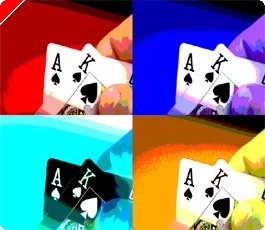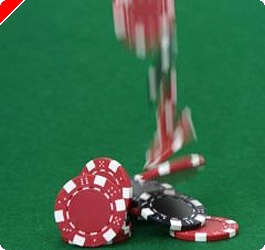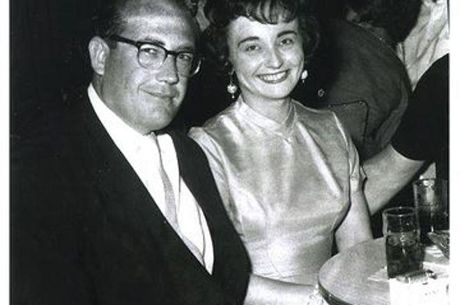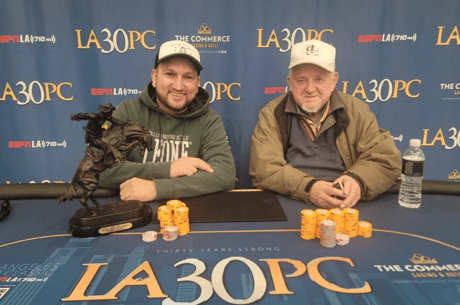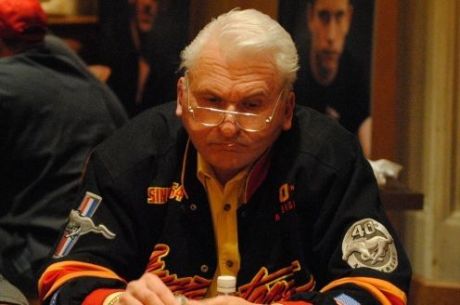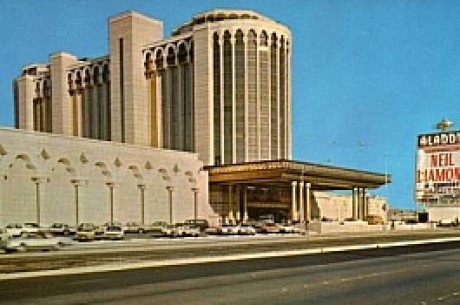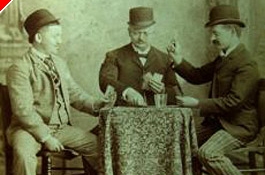Poker & Pop Culture: Poker-Playing Presidents

Americans head to the polls today to elect their 44th president. It has been a long, arduous, hotly-contested battle, and those reporting it have seen fit on numerous occasions to employ a variety of poker metaphors along the way. The stakes have never been higher, we've been repeatedly told. After many months of candidates' bluffing, upping the ante, and taking care not to tip their hands, today their cards are all on the table. At last, we've reached the showdown.
Perhaps one reason why pundits so readily turn to poker for vocabulary to describe presidential campaigns is the long-standing tradition of poker-playing U.S. presidents. Anecdotes abound detailing the predilection of many of the country's leaders for America's favorite card game, with some observers having seriously theorized that the skills and savvy required of poker are suitable preparation for those seeking the nation's highest office.
Abraham Lincoln was said to have played penny-ante games (not terribly well) prior to his becoming an attorney, a Congressman, and later President. Ulysses S. Grant played with junior officers during the Mexican-American War. Grover Cleveland enjoyed playing games of 25-cent limit draw poker on Sundays, once joking that while his father had once admonished him against fishing on the Lord's day, "he never said anything about draw poker." Dwight Eisenhower tells of playing poker as a young man, then later as a lieutenant colonel, though he apparently lacked the killer instinct, preferring to stop playing whenever he sensed his fellow officers losing too much. Even George W. Bush was purportedly an avid poker player while an MBA student at Harvard.
Here are a few other highlights from that broad collection of stories about poker-playing presidents.
GEORGE WASHINGTON
The game wasn't necessarily poker, but America's first president apparently did enjoy gambling and cards. We know Washington partook in such recreation primarily because of the famously-detailed expense accounts kept by the leader of the Continental Army. In Total Poker, David Spanier tells how among other items listed in his ledger, Washington kept a separate page titled "Cards and Other Play" where he carefully recorded his wins and losses at cards from the years prior to and during the Revolutionary War. The game of choice was reportedly a game called "post and pair," a three-card bluffing game that had some affinities with poker.
Washington dutifully recorded the location, date, and amount won or lost for every session of play, not shying from recording details no matter how badly he ran. During one particularly poor month in March 1772 (while in Williamsburg), Washington won more than £17 in five sessions, but had 12 losing sessions that totaled over £39 in losses. In Marvin Kitman's 2001 edition of Washington's account book, we learn that on January 1, 1775, Washington recorded that he had won 27 times and lost 36 times, coming out to a small profit (just over £6). In other words, it looks as though the father of our country was able to practice enough discipline to avoid the big losing sessions, thereby better enabling him to view his gambling as merely an "agreeable amusement."
WARREN G. HARDING
Though Warren G. Harding's term lasted less than two-and-a-half years, the 29th president distinguished himself considerably as one of the most ardent and dedicated poker players among the 42 men who have headed the U.S. government's executive branch. Throughout his presidency, Harding met twice a week with members of his cabinet for an ongoing, highly competitive poker game. When playing, Harding would advise his advisors — sometimes referred to as his "poker cabinet" — to pay no heed to differences in their status while at the poker table. "Forget that I am President of the United States," he would tell them. "I'm Warren Harding playing with some friends and I'm going to beat the hell out of them."
In Real Life at the White House, John and Claire Whitcomb describe the extent of Harding's love of gambling. "He liked challenging someone to what he called a cold hand," they explain, in which "each person cuts the deck, and the high card wins. According to the Whitcombs, it was in such a game of "cold hand" that Harding once gambled away the White House china to wealthy socialite Louise Cromwell Brooks.
FRANKLIN D. ROOSEVELT
Franklin Roosevelt likewise preferred to unwind over games of nickel-ante stud. According to presidential historian Doris Kearns Goodwin, the 32nd president often sought respite from the stress of the Second World War in games of poker with his cabinet officers. In a speech given at Kansas State University in 1997, Goodwin tells how Roosevelt would routinely hold "marathon poker games," and once a year would administer a special game on the night Congress was to adjourn. For that game the players followed "the strict rule that at the exact moment that the Speaker of the House called the president to say that Congress was adjourning, whoever was ahead at that moment would win the game."
Apparently on one occasion when such a call came from the Speaker, "Roosevelt was doing terrible," with his secretary of Treasury Henry Morgenthau way ahead. "So Roosevelt just took the phone and pretended it was somebody else on the line," and the game went on for two-and-a-half more hours until Roosevelt had pulled ahead. That's when he arranged for an aide to bring him a phone, and he pretended to take the call from the House speaker signaling the game's conclusion. All was fine "until the next morning when Morgenthau read in the newspaper that Congress had adjourned at 9:30." Apparently Morgenthau "was so angry that he actually resigned his cabinet post until Roosevelt charmed him into staying."
Some have suggested that on at least one occasion listeners detected the sound of riffling chips during one of Roosevelt's "fireside chat" radio broadcasts, although the truth of that is difficult to verify.
HARRY TRUMAN
In another oft-repeated story, FDR's successor, Harry Truman, has been said to have been interrupted from a game of poker to be told that Roosevelt had died and he had become president. A devoted player, Truman called poker his "safety valve." In a February 2008 article for The New Yorker, James McManus notes that "Truman had played as a doughboy during the First World War and kept up with war buddies at poker games, including during his years in the White House, where he played with chips embossed with the Presidential seal." Indeed, the sign Truman kept on his desk stating "The Buck Stops Here" was itself a phrase derived from poker, as the "buck" (subsequently called the "button") was the common name for the marker used to designate whose turn it was to deal.
Probably the most memorable instance of Truman's poker playing took place in early August 1945. Truman was aboard the U.S.S. Augusta engaged in daily, lengthy sessions of stud with a group of journalists during the final days before the dropping of the atomic bomb over Hiroshima. In Positively Fifth Street, James McManus has written about the game, noting that one UPI reporter (Merriman Smith) in fact believed Truman was using the game to avoid contact with his Secretary of State James Byrnes whom Smith thought might oppose the plan to use the bomb. Said Smith, the president 'was running a straight stud filibuster against his own Secretary of State.'"
Smith's comment likely overstates the importance of the game, however, as Byrnes was in fact in support of Truman's decision to use the atomic bomb. Still, the game may well have had at least a marginal effect on how the event was subsequently reported. In a March 2008 article for Card Player, McManus suggests that "Truman also may have used his tabletop rapport with 'Smitty' [Smith] and his colleagues to court their approval" while the monumental decision was being made.
RICHARD NIXON
Despite having been raised a Quaker, Richard Nixon took up poker as a young Naval officer during World War II and by all accounts was quite a formidable player. According to David Spanier, Nixon "took the game very seriously" from the time he first began to study it, "even if it was a 'friendly' game." He tended toward conservative play, generally only betting with strong starting hands (in draw), although he would bluff if the situation warranted doing so. Spanier refers to an oft-cited figure of $6,000 as the amount of Nixon's winnings during just two months of play while posted out in the Pacific.
Another oft-cited story regarding Nixon's poker playing shows in a dramatic way how the game may well have affected the course of American history. Following the war, Nixon was encouraged to run for a seat in the U.S. House of Representatives in 1946, and he used his poker winnings to finance his campaign. Nixon would soon abandon the game as he advanced up the political hierarchy, later stating in his autobiography that his poker playing had "been somewhat exaggerated in terms of both my skills and my winnings." He goes on to say he "found playing poker instructive as well as entertaining and profitable. I learned that the people who have the cards are usually the ones who talk the least and the softest; those who are bluffing tend to talk loudly and give themselves away."
Of course, as Spanier points out, when it came to "the biggest bluff that Nixon ever ran"-- i.e., Watergate — the 37th president would get called, and thus did his second term end prematurely. Perhaps he shouldn't have talked so loudly.

